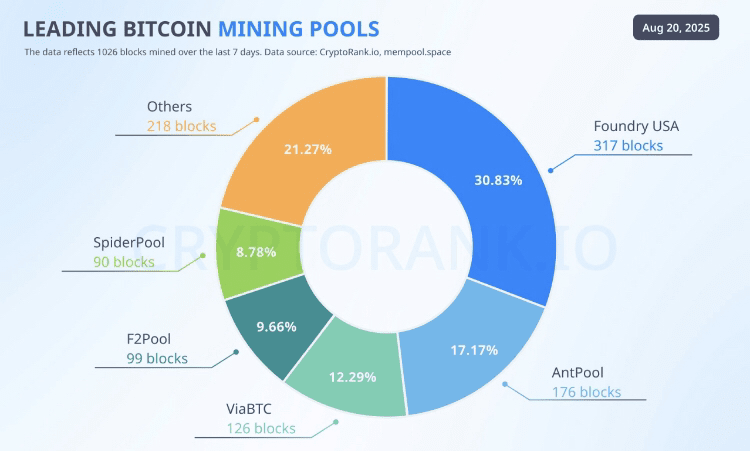The information you mentioned is accurate and indicates the current trend:
* Control of Foundry USA and AntPool: It is true that these two companies control a large percentage of Bitcoin's mining power. This concentration raises concerns about the ability of a few entities to influence the network, which contrasts with the idea of decentralization that Bitcoin is built upon.
* Foundry USA mining 8 consecutive blocks: This confirmed event clearly shows the enormous power that a single mining pool possesses. Although this could just be luck, it underscores the potential risks of centralizing mining power.
* The alleged Monero attack: This is the crux of the matter. Although many researchers and analysts confirmed that the attack claimed by the Qubic pool on the Monero network was not a real 51% attack, but rather a "publicity stunt," this event sparked debate about the vulnerability of small networks to such attacks. It also highlighted that merely holding a large share of mining power can raise concerns, even if no actual attack is carried out.
In the end, while the Bitcoin network remains extremely secure due to its massive size and the high cost of any attack attempt, the discussion about the centralization of mining remains vital. Some believe that the centralization of mining pools does not pose a significant risk because they cannot enforce changes to the protocol without the consent of the user community and full nodes, while others see it as weakening the spirit of decentralization and exposing the network to potential risks in the future.
Stay tuned for more news on digital currencies.
#Chainbase @Chainbase Official
#WalletConnect @Wallet Connect
@Daily Notcoin @Huma Finance 🟣 #HumaFinance @Lagrange Official

